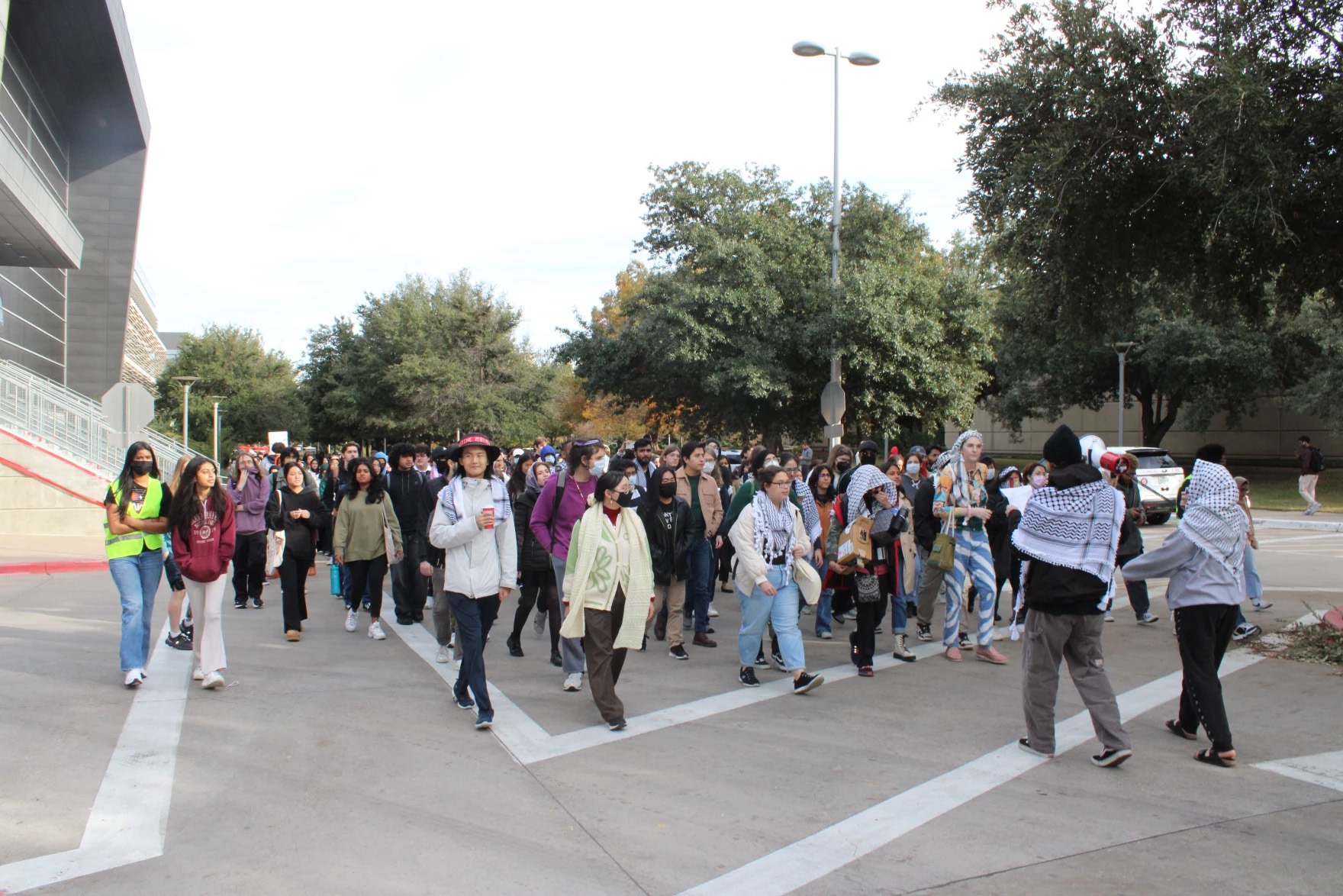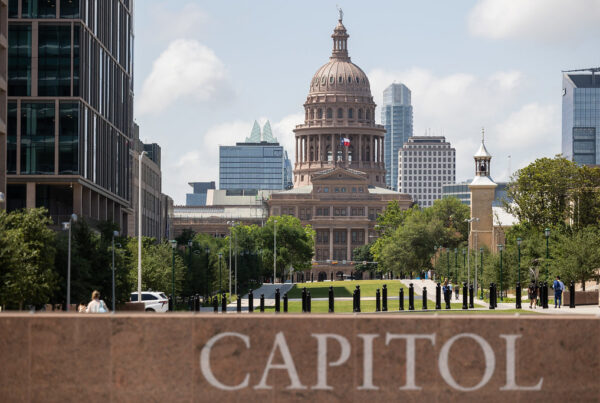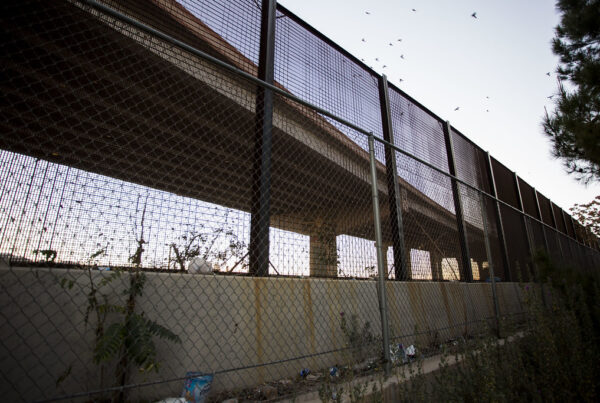From KERA News:
Last month, roughly 200 students at the University of Texas at Dallas protested on campus to demand that school administrators put back three painted boulders known as spirit rocks.
For weeks after the Israel-Hamas conflict started on Oct. 7, students had been painting the Palestinian and Israeli flags on the spirit rocks before the school removed them over fall break – saying the messages strayed too far from the rocks’ original purpose.
Alex De Jesus, a UTD senior, said the removal limits students’ political expression.
“Getting rid of [the spirit rocks] and saying you could post some fliers or you could try talking to administration, that’s never worked in the past,” he said. “That’s not the free speech that they claim it is.”
For Mihal Lasky, the president of UTD’s Jewish student group Hillel, it wasn’t so much the messages on the rocks that were the issue but the tense environment they contributed to. According to the Anti-Defamation League, more than 2,000 antisemitic incidents have been reported in the U.S. since the start of the conflict.
“I felt a really great sense of relief when [the rocks] were gone because I still think people can spread their views and talk about what is happening,” Lasky said, “but the rocks are no longer there to create another avenue for intimidation.”
The situation at UTD is just one example of how schools across North Texas and the country are struggling with questions of free speech amid the conflict in the Middle East. From walk-outs demanding a ceasefire to empty Shabbat tables symbolizing Jewish hostages, college campuses are dealing with often tense political discourse between students with different views on the conflict.
“This was never going to be a moment where there wasn’t going to be tensions on campus,” said Jonathan Friedman with the free speech advocacy group PEN America.
Intense political discourse at universities isn’t new, Friedman said – campuses have “been periodically quite volatile places,” he said, from protests in the 1930s to demonstrations during the Vietnam and Iraq wars.
What is new, he said, is how freedom of speech is being challenged in different ways all at once during this conflict.
“It’s the protests that are competing with one another, but it is coupled with professors who are being suspended from classrooms,” Friedman said. “Or feel like they can’t speak to students, students who feel like they can’t speak to professors and can’t speak to one another.”
UT Arlington political science professor Morgan Marietta recently resigned from his position as the chair of his department after a Q&A about the Israel-Hamas conflict escalated into heated arguments between attendees. Marietta said not long after, school officials told him he needed to ask for permission before hosting campus events.
“It’s not motivated by ideology,” he said. “It’s motivated by PR.”
A UTA spokesperson said the school was just providing guidance to “ensure a positive educational experience for all our students” and that no content or topic is restricted. But Marietta said UTA is sending a message that faculty shouldn’t talk about controversial issues that could affect the school’s image.
“If you’re thinking about really talking about difficult things, don’t,” Marietta said. “If you’re really thinking about educating students, think twice about that.”
Marietta’s replacement as chair of the political science department, Brent Sasley, — who was also a presenter at the Q&A — defended the university in a Dallas Morning News op-ed.
UTA and universities nationwide are failing students, Marietta said, because they’re not allowing civil discourse on polarizing issues.
“Because everyone understands that we have become a deeply, politically and culturally poorer country. It’s getting worse and worse,” he said. “And universities are directly meant to address this.”
Graham Piro, the Campus Rights Advocacy Program Officer with the Foundation for Individual Rights and Expression, or FIRE, said the organization has seen an increase in the visibility of free speech violations on campuses since the Israel-Hamas conflict started.
“Universities are supposed to be places where academic freedom and free speech can happen,” Piro said. “When they send the signal that they’re going to start punishing protected speech, that’s deeply chilling for what the mission and purpose of a university should be.”
Friedman with PEN America said universities have not done a good job of laying the groundwork of what civil discourse could and should look like. Schools need to teach students and faculty how to engage with one another even if they disagree, he added.
“The challenge for universities is to find a way to retain that place [of] being a space where people with different views can still come together,” Friedman said. “maybe leave without necessarily agreeing on everything, but still finding some value in having the opportunity to talk to one another.”
Back at UTD, student Margaret Belford said her problem with the removal of the spirit rocks is not the school administrators’ stance on the conflict, but the standard they’re setting for free speech on campus.
“If you want to mitigate tensions, do something,” she said. “Removing the avenues for expression is just making things worse.”













